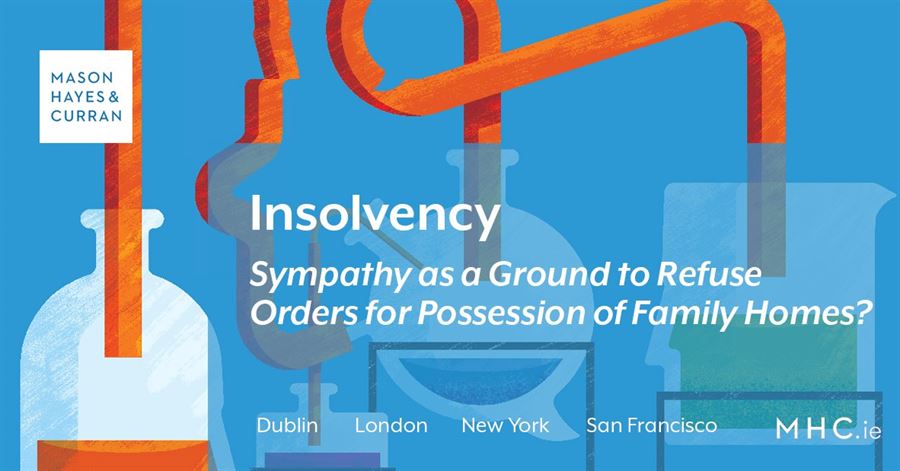
The Land and Conveyancing Law Reform (Amendment) Bill 2019 (the Bill) proposes to broaden the factors that the courts can consider in refusing orders for possession sought by lenders.
The Bill has its roots in the Keeping People in their Homes Bill, 2018, introduced by Kevin “Boxer” Moran T.D., as a private member’s bill. However, the Bill does not go as far as Mr Moran’s bill and, for instance, does not require disclosure of the price paid by a purchaser of the loan.
Background
The courts have always had discretion in applications for possession. However, that discretion was circumscribed. In Bank of Ireland v. Smyth,[1] Geoghegan J. held that this meant that:
“…the court is to apply equitable principles in considering the application for possession. This means that the court must be satisfied that the application is made bona fide with a view to realising the security….”
and stated:
“I do not believe that the Oireachtas intended a wide discretion which could take sympathetic factors into account.”
![]() Legislation[2] following the introduction of the Personal Insolvency Act 2012, required lenders to bring repossession proceedings in respect of principal private residences of borrowers and their families (PPRs) in the Circuit Court and gave discretion to judges to adjourn such proceedings to enable borrowers to seek to enter into a personal insolvency arrangement (“PIA”).
Legislation[2] following the introduction of the Personal Insolvency Act 2012, required lenders to bring repossession proceedings in respect of principal private residences of borrowers and their families (PPRs) in the Circuit Court and gave discretion to judges to adjourn such proceedings to enable borrowers to seek to enter into a personal insolvency arrangement (“PIA”).
The Bill
The Bill, if implemented as drafted, would require judges to take into account a list of factors when considering whether to make, or refuse, an order for possession of PPRs, including:
-
Would the order be proportionate in light of, amongst other things, the debt, the arrears and the value of the property on the date on which proceedings were commenced?
-
The circumstances of the mortgagor and his or her dependants.
-
Whether the mortgagee has made an offer to settle the matter in a way that would enable the mortgagor to remain in the PPR.
-
Details of any proposal made by the mortgagor that would enable the mortgagor to remain in the PPR or secure alternative accommodation and the mortgagee’s response to this.
-
The conduct of the parties in seeking to find a resolution to the arrears.
Whilst very broad, the discretion only arises where a borrower has been refused an adjournment for the purposes of seeking to avail of a PIA, at the end of any adjournment for that purpose, even where a proposed PIA has been refused on appeal or where the borrower has, prior to the commencement of the proceedings participated in a designated scheme,[3] or engaged the services of a personal insolvency practitioner.
Comment
In essence, the Bill requires the court to consider sympathetic factors and requires disclosure of what would normally be without prejudice communications to the court.
Moreover, the Bill ignores the borrower’s underlying liability which remains due and owing notwithstanding any sympathetic decision of the court. Equally, it appears that it would not be a bar to further possession proceedings.
If the Bill is enacted, as drafted, it is inevitable that there will, at least initially, be significant divergence between judges in how this discretion is exercised. Moreover, as the Circuit Court does not normally produce written judgments, such variation will likely prevail until there are written judgments on appeals.
Separately, the factors to be considered by the courts and the need for valuations, will make hearings longer and more expensive.
The content of this article is provided for information purposes only and does not constitute legal or other advice.




